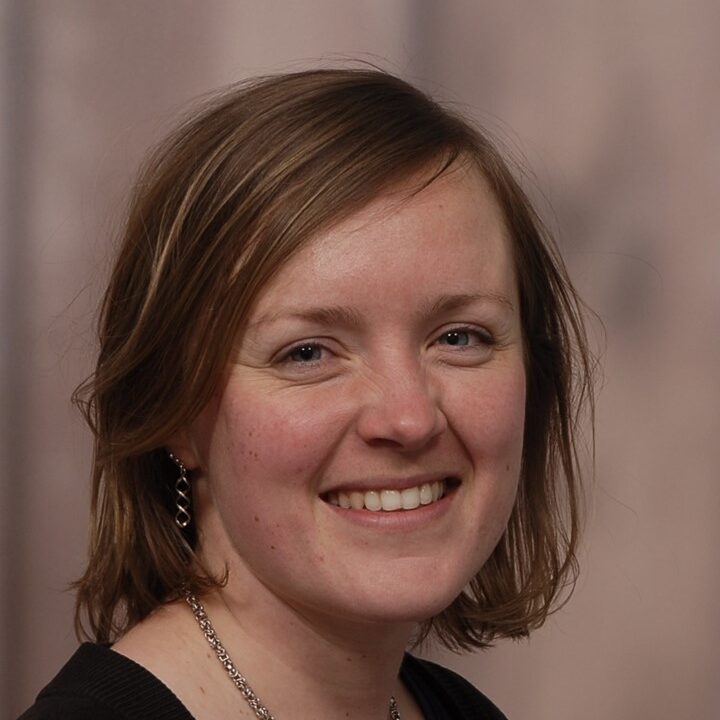Meet Your Professor: Anke Liefbroer
In Meet Your Professor we will introduce you to the new teachers of seminars and courses at NOSTER. In this third episode, we introduce dr. Anke Liefbroer (TST), who will teach a Research Seminar on Empirical Research in Religion.

How did you get to where you are today, academically? What path did you walk?
I have received my Bachelor’s degree in Psychology, followed by a Master’s degree in Clinical Psychology, both at the University of Groningen. Because of my interest in exploring the role of religion, worldviews, and meaning in people’s well-being, I pursued a Master’s program in “Religion and Identity in the Modern World” at the University of Amsterdam. This program provided a comprehensive understanding of the field of the psychology of religion and sparked my interest in religious studies research.
After completing my studies, I engaged in doctoral research at the Vrije Universiteit Amsterdam from 2016 to 2020. In addition to several shorter research projects, I have also worked as a postdoctoral researcher and university lecturer for a brief period. In 2022, I commenced my position as an Associate Professor in the Psychology of Religion and Spiritual Care at Tilburg University.
What kind of research do/did you do and why? Which result do you remember the most?
In my research, I focus on how individuals find and create meaning in life and how others can support them when they struggle with this process. I employ various empirical research methods to explore this topic. I find it fascinating to observe how the findings from these different methods often complement, but sometimes also contradict each other.
During my doctoral research, I investigated interfaith spiritual care, examining the role of religious and worldview differences in the practice of spiritual care. For instance, I found that spiritual care providers perceive that clients with a similar religious or worldview background value the care they receive more than clients with a different background. We tested this assumption indirectly through a questionnaire survey. I asked clients to rate the spiritual care they received and indicate their own religious or worldview affiliation. Using this data, along with the religious or worldview background of the spiritual care providers, I then examined whether there was a correlation between the level of appreciation and having a similar religious or worldview affiliation as the spiritual care provider. Surprisingly, we found no such correlation.
In another study, the results from different methods strongly complemented each other. Collaborating with colleagues, I researched how spiritual care providers can support individuals in the palliative phase using a conversation model called “Engaging with Your Life Story.” Quantitative results indicated an increase in the spiritual well-being of participants over time. The qualitative outcomes from interviews, focus groups, and workbooks helped us gain a better understanding of what occurred in the conversations and how the conversation model contributed to clients’ spiritual well-being. The qualitative findings provided essential additional insights to interpret the quantitative results effectively.
Which themes do you cover in your Research Seminar?
The empirical seminar, which I teach with dr. Brenda Mathijssen (RUG), focuses on conducting empirical research. It provides a platform for PhD candidates and (research)master’s students to present their own research, which is then discussed within the group. Additionally, the seminar covers topics and literature relevant to empirical research on religion. This includes qualitative and quantitative research designs, methods of data collection, analysis techniques, ethical considerations, and scientific integrity in empirical research.
The seminar also addresses subjects that touch upon the researcher’s personal involvement in the research, the subjectivity/objectivity of research, emic and etic descriptions, publication strategies, and preparation for the defense of research findings. By exploring these topics, participants gain a deeper understanding of conducting empirical research in the field of religion.
Why is your module at NOSTER so fun/interesting? What appeals to the participants in the module?
When I was working on my own doctoral research, I participated in this NOSTER seminar. At that time, I found great value in the topics we discussed. It helped me reflect on the methodological choices I made in my research. Equally important, perhaps, was the exchange with fellow PhD candidates and (research)master’s students. The seminar provided a space for us to think together and motivate each other throughout the research process. It also broadened our perspectives on the empirical research taking place at other universities in the Netherlands. I hope that the seminar continues to be of great value to current participants.
What advice would you like to give to young researchers in religious studies/theology?
My advice probably says more about myself than about the group of young researchers I’m giving the tip to! However, if I had to give one: enjoy the research process, align your research methodology well with your research question, and surround yourself with people who can think critically and constructively with you.